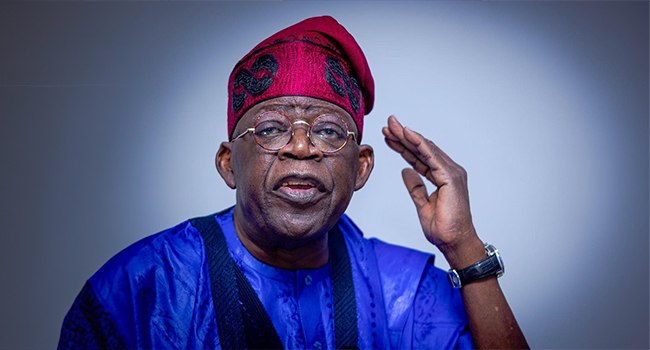
Between Tinubu’s Subsidy Reforms and Nigerians’ Pain
Since taking office more than two years ago, President Bola Ahmed Tinubu has faced fierce public scrutiny. Critics have focused heavily on his administration’s decision to remove petrol subsidy and float the naira.
Many argue that the supposed benefits are not reaching the masses but ending up in private hands. Despite these concerns, some of the government’s economic reforms are showing visible results.
These include wage increases, debt repayment, aviation recovery, and better foreign exchange management.
Redirecting Subsidy Funds
The removal of petrol subsidy remains one of the most defining actions of the Tinubu administration. It was a politically risky step but seen by many as a long-overdue economic reform.
Funds saved from the subsidy have been redirected into key national programmes. The government signed a new national minimum wage of N70,000.
This came after intense negotiations with the Nigeria Labour Congress. Large-scale manufacturers also received N1 billion to cushion economic pressures.
The NYSC allowance increased from N33,000 to N77,000. This came as relief to thousands of corps members battling inflation. The increase was linked to funds saved from ending the subsidy.
The newly launched Consumer Credit Corporation received over N200 billion. The aim is to help Nigerians access goods without needing to pay cash upfront. This is designed to boost spending and ease hardship.
More than N95 billion has been allocated to the Student Loan Scheme. Over 600,000 young Nigerians have already benefited. The loan programme was made possible with funds from subsidy removal.
Since January 2025, the NNPCL has started remitting 50 percent of crude oil sales into the Federation Account. This has increased monthly allocations and enabled 33 states to repay a total of N1.85 trillion in domestic debt.
Debt Repayment and Fiscal Relief
The Tinubu administration has also reduced Nigeria’s debt burden. The country fully repaid a $1.61 billion loan to the IMF. This removed Nigeria from the list of heavily indebted countries.
The percentage of government revenue used to service debt has dropped. It was 95 percent but now stands at 65 percent. This gives the government more freedom to invest in infrastructure and social programmes.
Nigeria’s revenue-to-debt servicing ratio now stands at 45 percent. This improvement gives more breathing room for development spending.
More Money to States
With subsidy gone, FAAC allocations to states have increased. Between June 2023 and May 2024, state allocations rose from N3.58 trillion to N4.5 trillion. Ten states saw their monthly allocations rise by at least 50 percent.
However, many states have failed to match higher revenue with visible development. Citizens continue to ask tough questions about how the money is being used.
Aviation Sector Shows Signs of Recovery
Floating the naira has also impacted the aviation sector. The previous system of multiple exchange rates cost the country over N13 trillion between 2021 and 2023.
Now, foreign reserves have grown. From $3.99 billion in 2023, they climbed to $23.11 billion in 2024. The government used over $10 billion to clear foreign debts.
A total of $136 million has been paid to international airlines. This cleared all verified forex obligations. As a result, IATA removed Nigeria from its list of defaulting countries.
By June 2024, IATA confirmed that 98 percent of blocked airline funds had been recovered. The aviation sector now contributes $1.7 billion to Nigeria’s GDP. This reflects growing confidence in the industry.
To sustain this growth, AMCON is chasing N228 billion owed by local carriers. The NCAA has also warned airlines to pay their debts or risk losing their operating licenses.
Rebuilding Trust in the Economy
The Central Bank’s decision to unify exchange rates has helped restore credibility. It also curbed abuse and removed the controversial forex subsidy.
Agencies like the World Bank and Fitch Ratings have applauded the reforms. They see signs of slow but steady progress in Nigeria’s economy.
Room for Improvement
Despite the gains, deep problems remain. Citizens still complain about hardship. Corruption, poor coordination, and slow project delivery continue to weaken trust in government.
Many believe more must be done to ensure these reforms translate into real change — jobs, better services, and less poverty. Yet, signs of a slow but steady recovery are becoming harder to ignore.
If the momentum is sustained and reforms are backed by integrity and purpose, a more stable and prosperous Nigeria may be within reach.
